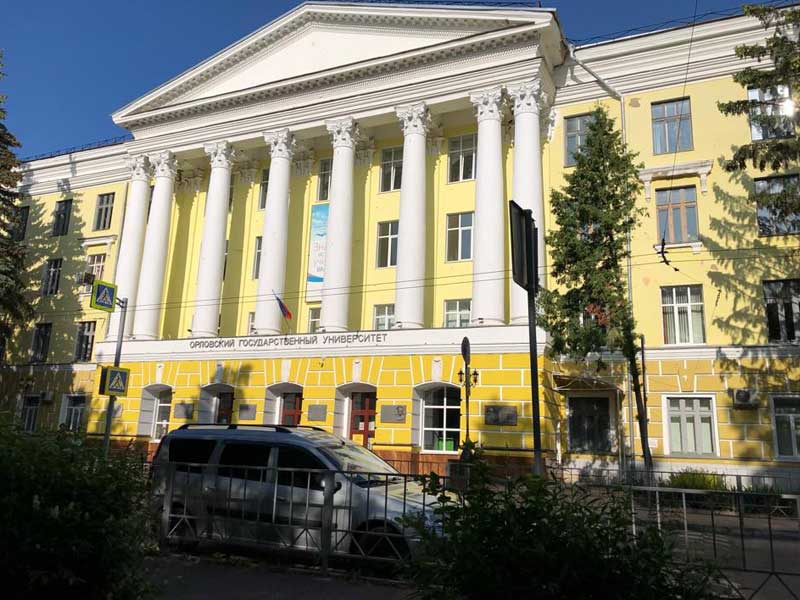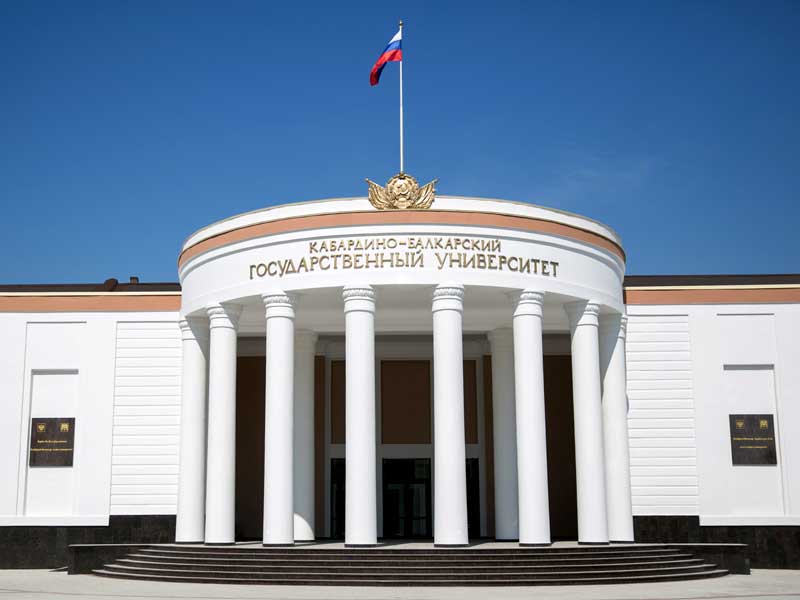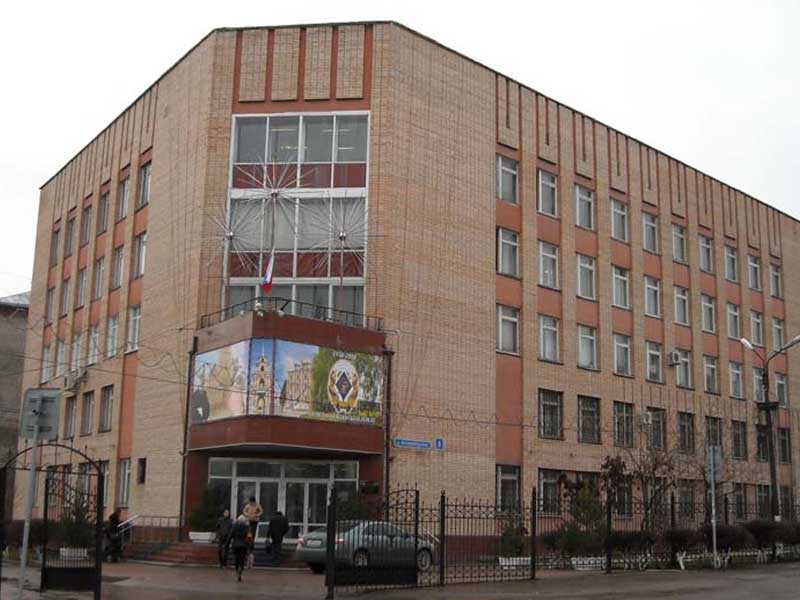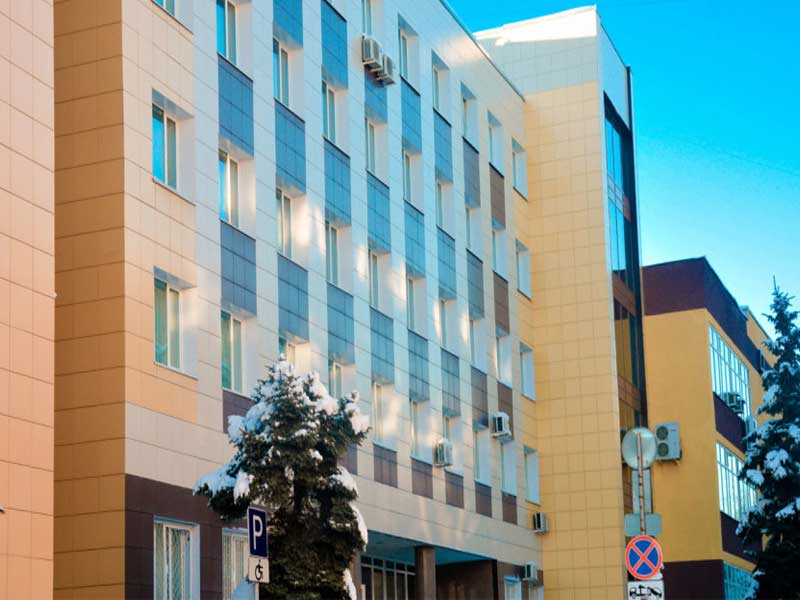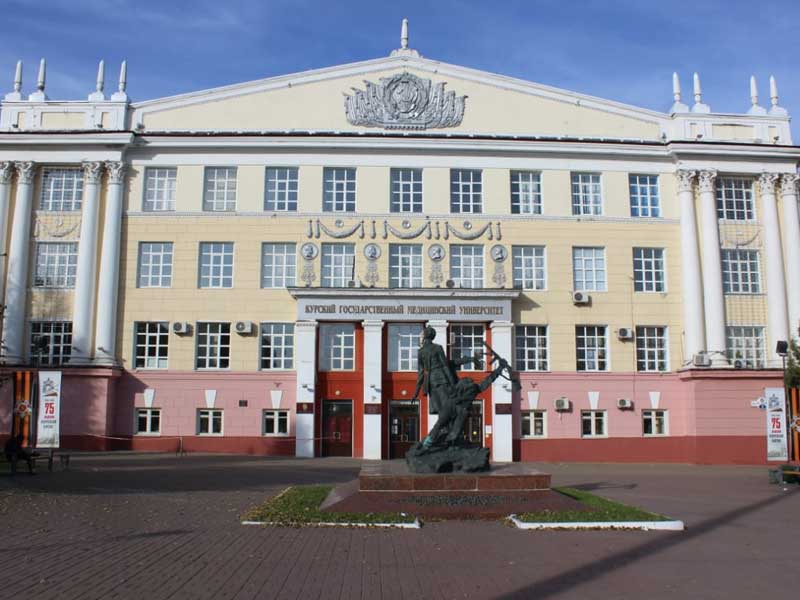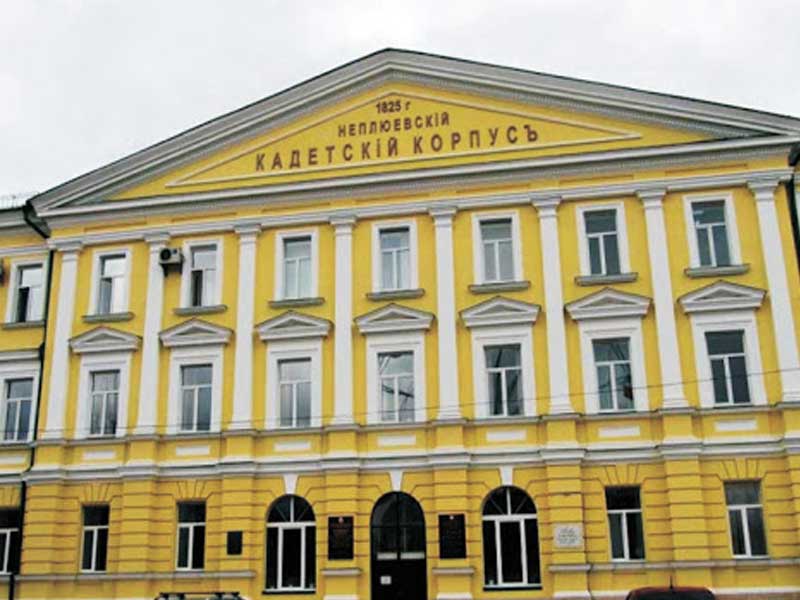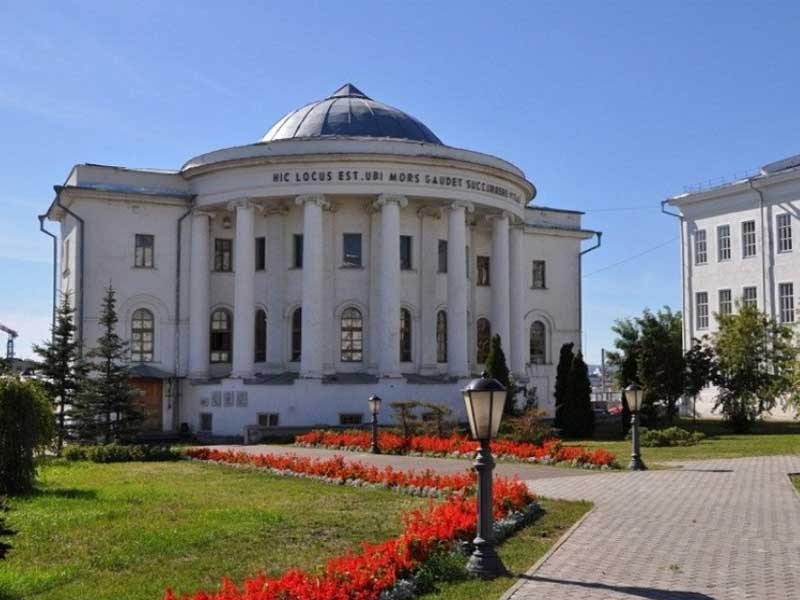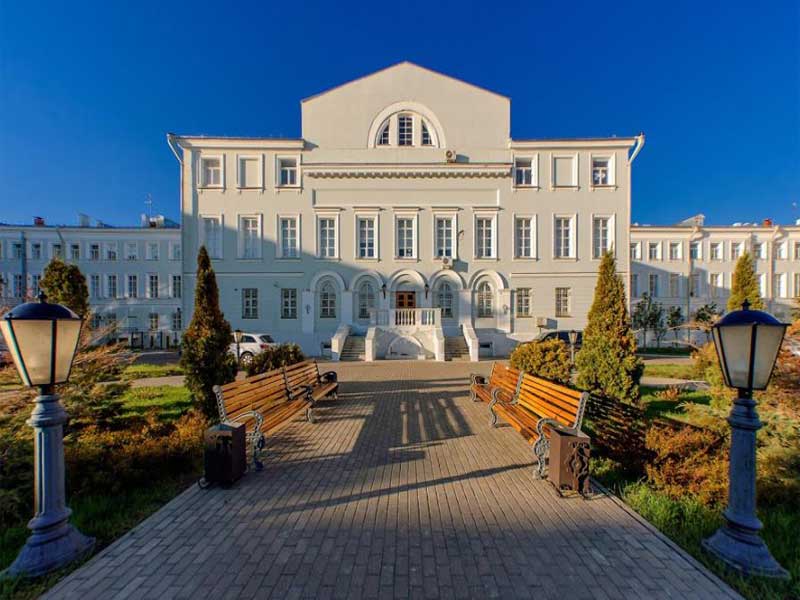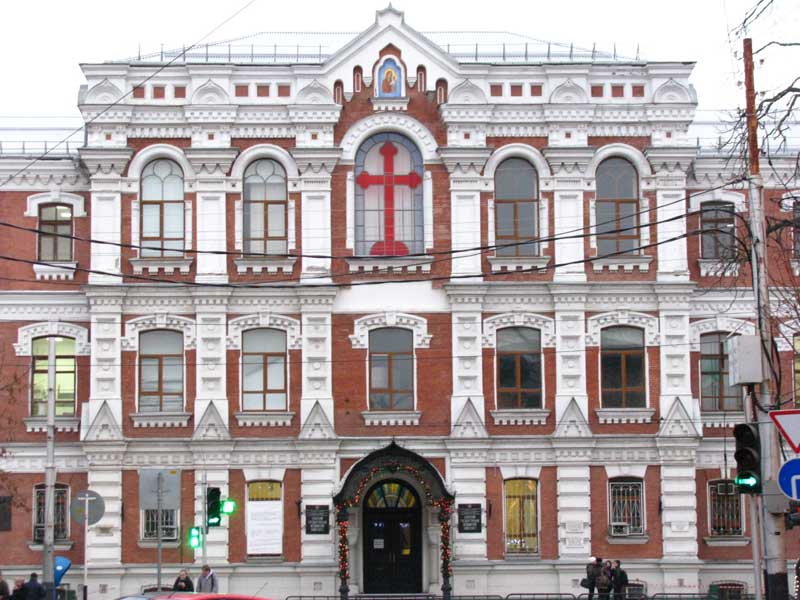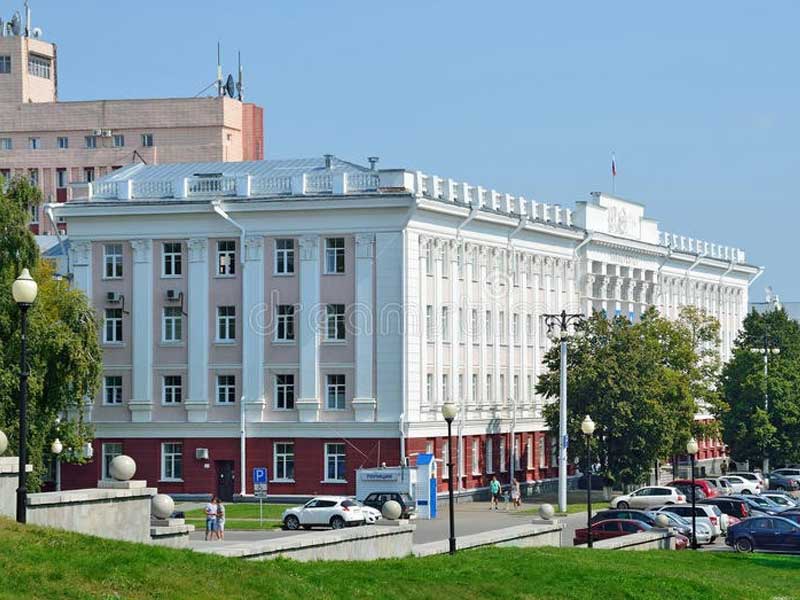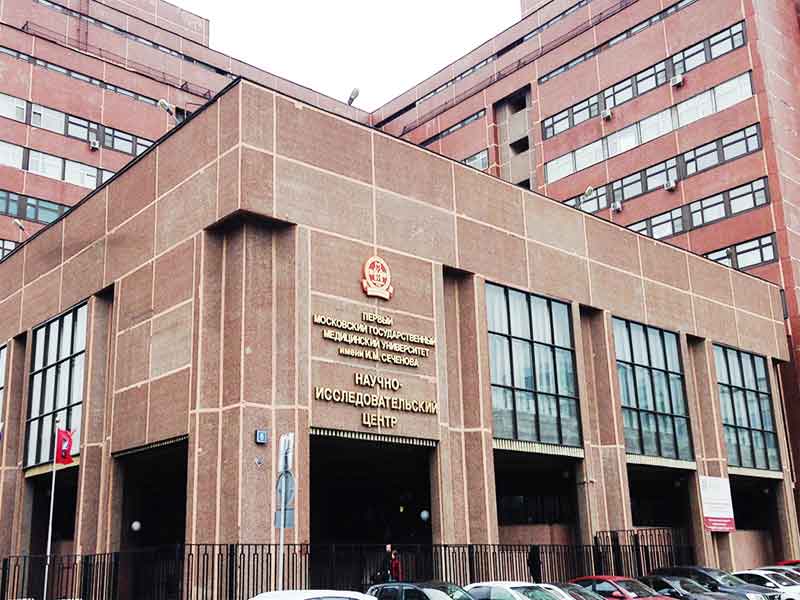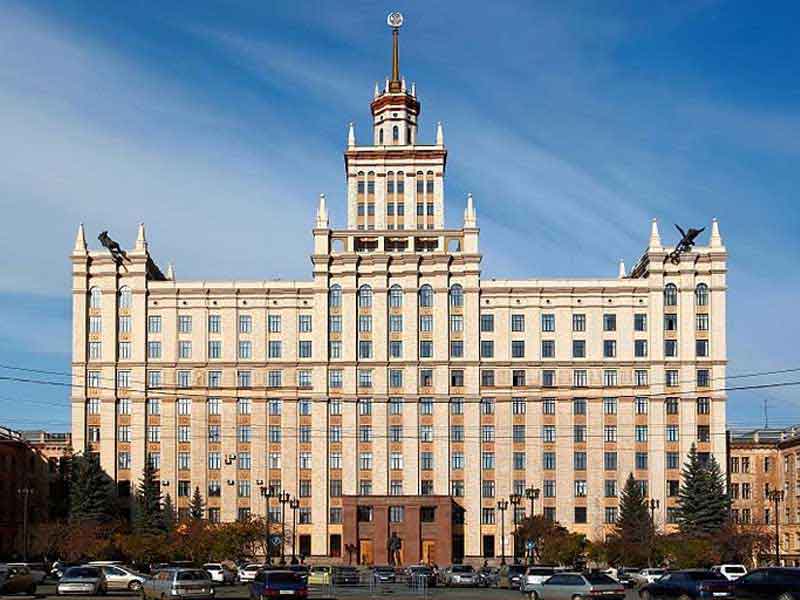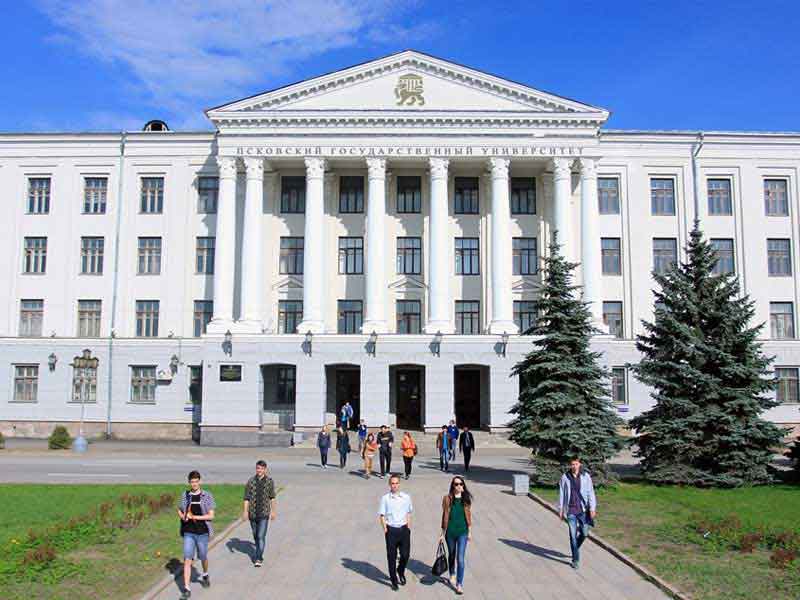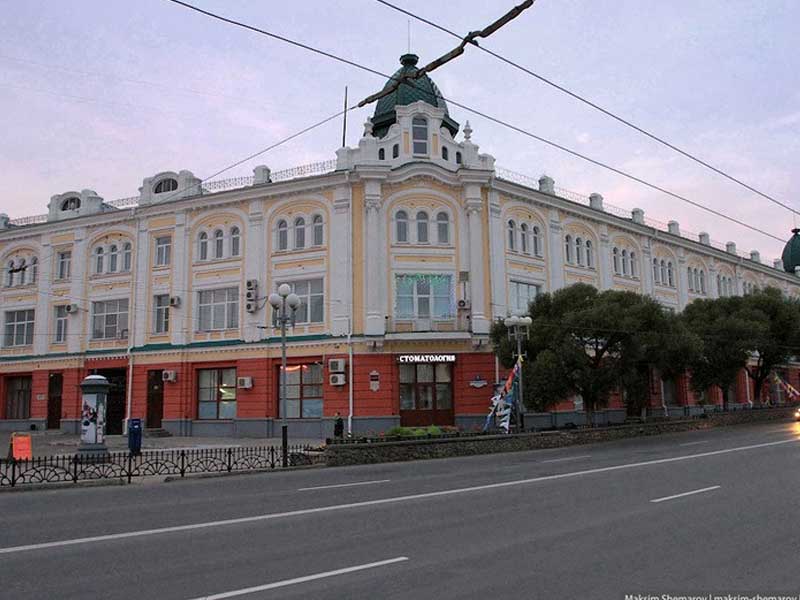Get information about admission process, visa process, Entrance exam, eligibility and cost of living in Russia
About Russia
Russia or the Russian Federation is a country spanning Eastern Europe and Northern Asia. It is the largest country in the world, covering 17,125,191 square kilometres (6,612,073 sq mi), and encompassing more than one-eighth of the Earth's inhabited land area. Russia extends across eleven time zones, and has borders with sixteen sovereign nations. It has a population of 146.2 million; and is the most populous country in Europe, and the ninth-most populous country in the world. Moscow the capital is the largest city in Europe, while Saint Petersburg is the nation's second-largest city and cultural centre. Russians are the largest Slavic and European nation.
Russia country that stretches over a vast expanse of eastern Europe and northern Asia. Russia is a land of superlatives. By far the world’s largest country, it covers nearly twice the territory of Canada, the second largest. It extends across the whole of northern Asia and the eastern third of Europe, spanning 11 time zones and incorporating a great range of environment. The inhabitants of Russia are quite diverse. Most are ethnic Russians. Russia’s climate is extreme, with forbidding winters that have several times famously saved the country from foreign invaders. Although the climate adds a layer of difficulty to daily life, the land is a generous source of crops and materials, including vast reserves of oil and gas.

Five years ago, fundamental changes began in Russian healthcare, one of them was the creation of the large national medical research centers. At the suggestion of Minister of Health Veronika Skvortsova, three well-known and authoritative collectives were united: P. Hertsen Moscow Oncology Research Institute (MORI); A. Tsyb Medical Radiological Research Centre (MRRC); N. Lopatkin Scientific Research Institute of Urology and Interventional Radiology (SRIUIR) – in 2014, the the Federal State Budgetary Institution “National Medical Research Radiological Centre” (NMRRC) of the Ministry of Health of the Russian Federation was established on their basis. Of course, at the beginning of the journey there was a lot of thinking about how to preserve the best in this new configuration, not to lose the tradition. Today, when the problem of fighting cancer worldwide has come to the fore, and in our country has become a national priority, we understand how timely was the decision to create the first such oncocluster in Russia. Today, more than three thousand people work in our joint center, we perform more than 16,000 operations a year, more than 3000000 studies, test a large number of new drugs and modern techniques.
Our specialists perform unique operations: they completely restore speech and normal functions of the tongue, pharynx, larynx from the patient’s own biomaterial; they perform radioembolization using domestic microspheres developed by us, we do brachytherapy on the liver and pancreas using the domestic radioisotope Iodine 125. Competent routing between the branches of the Center allows the patient who came to us to go through a complete vicious circle of combined and complex diagnostics and treatment, including surgery, various options for drug and radiation treatment.
Opportunities for international cooperation are wide – colleagues from reputable foreign cancer centers consult with us, with whom we have signed more than one agreement on real joint projects over the past two years. A common teleplatform is being created in the field of the exchange of morphological and clinical data, the plans include the second proton and the first ion center in the post–Soviet space together with Japanese colleagues. They come to us for experience, and they are surprised at what significant results we have been able to achieve in some five years. This became possible thanks to the synergy of our association and state support for our discipline-oncology. The effectiveness and targeting proclaimed by the new program for the fight against oncological diseases, multidisciplinary approach in solving the tasks set have become a reliable basis for its implementation.
Director General of the Federal State Budgetary Institution “National Medical Research Radiological Centre” (NMRRC) of the Ministry of Health of the Russian Federation. Director of the P. Hertsen Moscow Oncology Research Institute (MORI) – branch of the FSBI “National Medical Research Radiological Centre” (NMRRC) of the Ministry of Health of the Russian Federation. Chief oncologist of the Ministry of Health of the Russian Federation.
Official Name-- Russian Federation
Short Name- Russia
Capital- Moscow
Continent- Western Asia and Eastern Europe
Local Language- Russian
Currency- Ruble
Neighbouring countries- 14 (Finland, Lithuania, Poland, Belarus, Latvia, Ukraine, Georgia, Azerbaijan, Kazakhstan, China, Norway, Estonia, Mongolia, and North Korea.)
Known for- Largest Country in the world by Area, Veto Member of United Nations
Why Study MBBS in Russia?
Medical Study in Abroad is very easy for a normal student because any student from all over the globe can take direct MBBS Admission without any entrance exam. MBBS fee in abroad is very low because the Abroad Governments provides subsidy for education. Average MBBS fee in Russia, Georgia, Bangladesh, Belarus, Moldova, Armenia, Serbia, Bosnia, Kyrgyzstan, Kazakhstan, Uzbekistan is between 2.25 Lac to 4 Lac / year. All Abroad Medical Universities are listed in WHO and MCI so a student who gets an MBBS degree from Russia can practice anywhere in the world including India. Students from all over the globe go to abroad for MBBS Study and all medical universities provide quality medical education and practical knowledge. Students get fully furnished hostel facility inside the university campus with fresh and quality Indian food. MBBS Students can get scholarship also if they fulfil the scholarship criteria in abroad. All MBBS students in abroad get Medical Insurance for all courses and get full medical treatment when they need. Students get training for MCI screening test during the medical course and professors are well aware about the MCI screening test. Medical courses are taught in English and Russian languages both, MBBS students also get training to learn Russian Language because by learning Russian language a student can communicate with patients in the hospital during the time of medical practice.
Top Russian Medical Universities Fees Detail
| UNIVERSITIES NAME | Fees Package in Rs.(Approx.) | ||
|---|---|---|---|
| Ivanovo State Medical Academy | 14 Lac | ||
| Yaroslav State Medical University | 15 Lac | ||
| Yaroslavl The Wise Novgorod State University | 20 Lac | ||
| Orel State University | 15 Lac | ||
| Tula State University | 15 Lac | ||
| Kabardino Balkarian Medical University | 13 Lac | ||
| Bashkir State Medical University | 18 Lac | ||
| Ryazan State Medical University | 20 Lac | ||
| Voronezh State Medical University | 22 Lac | ||
| Tver State Medical University | 18 Lac | ||
| Kursk State Medical University | 28 Lac | ||
| Orenburg State Medical University | 28 Lac | ||
| Kazan State Medical University | 26 Lac | ||
| Kazan Federal University | 29 Lac | ||
| Kuban State Medical University | 18 Lac | ||
| Altai State Medical University | 26 Lac | ||
| Crimea Federal University | 20 Lac | ||
| I.M.Sechenov First Moscow State Medical Academy | 50 Lac | ||
| Saint Peterburg State University | 24 Lac | ||
| Visit our office at Court Road, Near Balaji Mandir, Opposite BSA office, District Moradabad or Call 7895359150 | |||
Medical Universities for Study MBBS in Russia
Benefits
- Tuition fees in your budget.
- Tuition fee student can pay semester wise.
- 100% visa guaranty.
- Degree recognised by NMC, WHO, FAIMER and UNESCO.
- Broad exposure to the students which includes clinical practice and medical training.
- Government universities have own highly equipped hospitals.
- High FMG screening test result.
- Girls and Boys hostels rooms are separates.
- Indian food available.
- Our pass outs students are working not only in India but in Australia, Canada, USA, UK and other major countries across the globe.
Our services
- We help you to select the right university as per the requirement of their budget.
- We provide you to briefly guidance pre-departure and complete documentation.
- We assist you to purchase Foreign currency and Travel Assistance.
- We assist you with the suitable information and consultation in obtaining a visa for students parents to visit their children.
- Our person assist to carefully pic group of students from Airport.
- After reaching university hostel, We offer to our students 5-7 minutes call of your parents/relatives.
- Our person assist you in hostel registration, to buy a International SIM card & an opening a Bank account.
- Our person assist you to get you in issuance of your library card, Hostel card, student card & Exam book.
- Our person assist you in the Biometrics, Medical check-up, Insurance, Visa extension & an obtaining the Certificate of Equivalency from the Ministry of Education.
- We take care of our students during the whole period of study.
- We help our students in enrolling for screening test coaching classes.
Admission Procedure
- Visit our office personally for admission. There will be provide you information regarding abroad universities, eligibility criteria, fee structure and admission procedure.
- The students and parents need to understand carefully all the information about Universities fee and other expenses abroad.
- Once the student and parents has satisfied with all points, students must fill up application form for book his seat in abroad University.
- Student should bring original educational documents - marksheets & passing certificate of 10th, 12th and B.Sc (if completed).
- NEET Passed result.
- Both Vaccination ertificte.
- 06 Coloured photographs - size 35X45 cm, 70% face cover, white back ground.
- Aadhar card and Pan card of student.
- Aadhar card and Pan card of Father or Mother.
- At primary stage student has to pay / bank transfer an Application charges Rs. 50,000 (Fifty thousands Rupees).
- After deposit the Application fee you will receive an Admission letter from university within a week. At that time student should submit original Passport with photographs. Original Passport should be valid minimum 1.5 years.
- Next We will apply for the Visa Invitation letter which is an official document issued by the Ministry of Foreign affairs of destination country.
- After receiving the Visa Invitation letter, Student should pay cost of visa which is staple by Embassy, New Delhi.
- Once the visa is ready, our staff will inform the student about the date of travel with group of students.
- The student shall make arrangements to take necessary foreign exchange to pay tuition fees and other expenses. 12th marksheet including Passport are given back to the students at the time of departure at Airport.
- By this time students should start preparing for their travel to abroad. Besides a check-list of necessary instructions will be provide to the student.
- The students will also need to ensure that all the necessary original documents are kept as such documents will need to be presented at the university office on their arrival. There group of students will be received by our representative. Who will help to reach from Airport to the University hostel.
- Next day, our representative will help group of students to submit the Tuition fees, Hostel fees and other charges in the University. All instructions will be guide by our representative until the complete admission process is done and will help to students at every step in foreign country.
- Medical check-up in India & Abroad, Air ticket and food charges will be extra. Please Note:- An Application charges, Consultancy & other charges are Non-Refundable.
FAQ
Yes, NEET Exam have to pass as per National Medical Comission of India. Student can read carefully all rules and regulations on website https://www.nmc.org.in/
PCB for General category 50%, PCB for SC, ST, OBC category 40%, To get registeration in National Medical Comission of India and do practice in India, student have to passed NEET exam. If student interested to do practice in abroad only, in that condition he have a right to take admission directly in any medical University/College/Institute abroad.
The medium of Instruction is English, Russian & Bilingual. Student have to choose one.
Two times in a year. September and February
In Bank account.
Yes, but first of all student has to qualify FMG screening test.
Students get unlimited chance to clear FMG Screening Test. It held on twice a year June and December.
Yes, after clearing the screening test and getting your NMC registration with the state or central council, you are eligible for any government & private appointment.
Yes, we will fully assist you in applying for educational loan, the decision of sanctioning the loan is entirely depends on the BANK and you need to meet the criteria devised by the bank for sanctioning of loan.
Duration is 5 years in English medium.
Yes. Students visa is multiple, he can come to India minimum 2 times in a year as on own expense. All countries have two breaks winter and summer.
No, A student can not do a job legally while studying, since he/she is having a student visa.
Get information about admission process, visa process, Entrance exam, eligibility and cost of living in Russia, Ivanovo State Medical University fees, Ivanovo medical, Ivanovo medical university, Ivanovo medical Academy, Yaroslav State Medical University, Samarkand Medical fees, Samarkand State Medical University, mbbs in uzbekistan, Samarkand State Medical Institute uzbekistan, I. M. Sechenov First Moscow State Medical University, I. M. Sechenov First Moscow State Medical Academy, MBBS Admission in I. M. Sechenov First Moscow State Medical University, MBBS Fee of I. M. Sechenov First Moscow State Medical University, Study mbbs in Russia, mbbs in russia, mbbs russia, mbbs fees russia, mbbs fees in Russia in rupees, mbbs in Russia for Indian students, top 10 medical university in Russia, best medical university in Russia, top ranking university in Russia, kursk medical university fees, orel state medical university fees, tula state medical university fees, Yaroslavl state medical university fees, Yaroslav the wise Novgorod medical university fees, Kazan medical university fees, Orenburg medical university fees, Kemerovo medical university fees, Ivanovo medical university fees, Tver medical university fees, Kabardino balkarian university fees, Ryazan state medical university fees, Ryazan state medical university ranking, Novgorod state university fees, Pskov state university fees, Mari state medical university fees, Bashkir state medical university fees, Tashkent medical academy fees, Fergana medical university fees, Samarkand state medical university fees, Samarkand medical university Uzbekistan, Urgench medical university fees, Bishkek medical university fees, Osh state university fees, South Kazakh university fees, West Kazakh university fees, Kazakh national medical university fees, mbbs kyrgyzstan, mbbs fees kyrgyzstan, mbbs kazakhstan, mbbs fees Kazakhstan, Uzbekistan mbbs fees, mbbs Uzbekistan, mbbs fee Serbia, mbbs fees bosnia, mbbs fees Bangladesh, mbbs admission in bagladesh, best medical college in Bangladesh, mbbs fees abroad, cheapest medical college in up, Tashkent Medical Academy, Tashkent Medical Academy fees, Tashkent Medical Academy fees for Indian Staudents, Termez medical fees, Termez Medical fees for Indian students, MBBS fees Uzbekistan, Fergana medical fees, fergana medical university ranking, fergana medical admission, fergana medical university hostel, world ranking,ranking, fees, tuition fee, tuition fees, best, college, university, top 5, top 10, medical, university, dhaka, bangladesh, almaty ivanovo, fee structure, lowest fees, russia medical university total package in rupees




